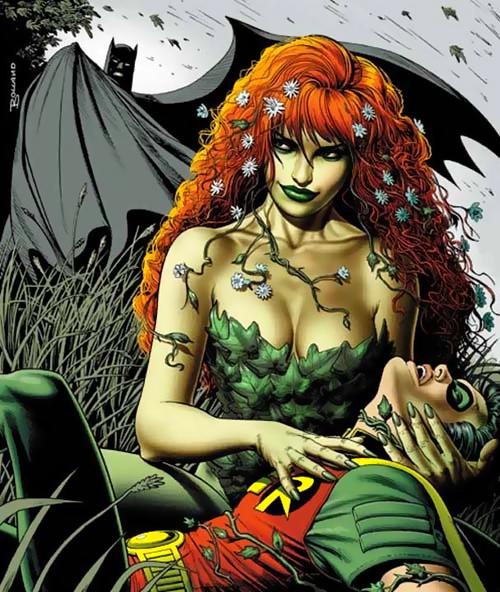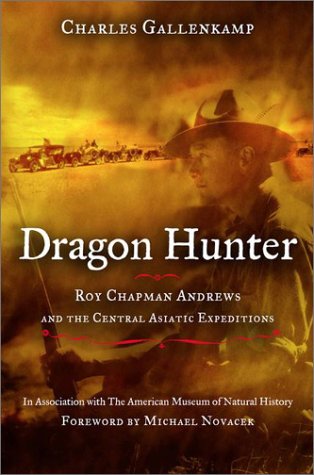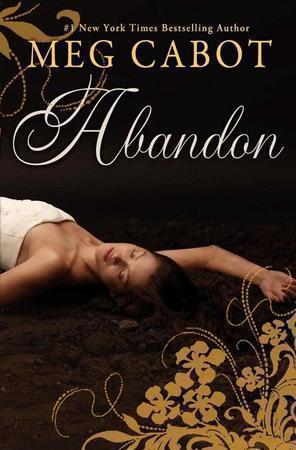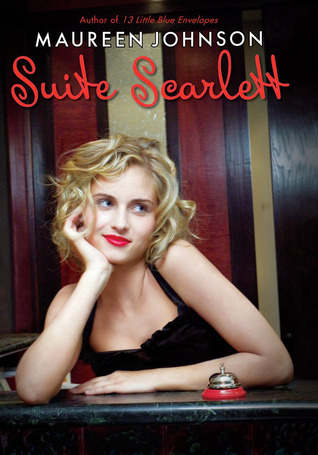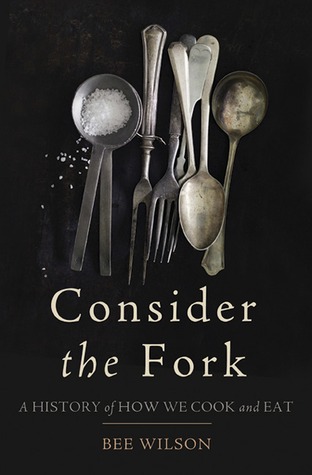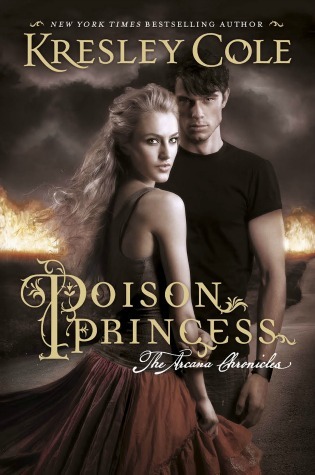
In a post-apocalyptic world, a guy named Arthur lures a girl named Evie into his home, promising food, drink, and safe rest in exchange for the story of how she got to his little crossroad. Of course, Evie doesn't know that other girls have been lured here and have met gruesome deaths in Arthur's basement. She wants the food, and the rest, and to have a shoulder to cry on, so she tells him her story.
Evie thinks she's crazy. In fact, before the apocalypse (called "the Flash") left the planet barren, Evie had just gotten out of an asylum, where her mother placed her for her "hallucinations." Actually, though, they're not hallucinations; they're visions of the future, and only Evie seems to know what's coming.
Okay, so, this was part high school drama, and part post-apocalyptic story. The high school drama occupies the first 30% of the book, and it almost drove me crazy. Evie struggles to fit in with the other kids at her school, even though she still hallucinates and has visions of the "red witch," whose design has essentially been lifted straight from Batman's Poison Ivy, though the witch's MO is different. Kind of. Considering Evie is supposed to be the Empress of the tarot deck, I don't really see where this came from. See, this
does not bear a lot of resemblance to this
Evie deals with her issues by drawing, and not just any old stick-figure drawings. She paints murals on her bedroom walls and has a whole sketchbook full of beautifully disturbing images. This means that she is not only a Popular Cheerleader, but also an Artiste. She is "friends with everyone," and also apparently thinks she knows better than everyone else. For example, at one point, she says that "no girl walked the hall with a wardrobe malfunction under my watch," which she's trying to use as an example of how friendly she is, but really just comes across as her trying to force people into a form that she likes. She is totally into slut-shaming, thinking Clotile is a slut because she wears short skirts and cutoff t-shirts and is "readily available for sex," and that other girls are "slores" because they are attracted to Evie's boyfriend Brandon. Now, considering that Brandon is supposedly the most eligible guy
ever, I'm pretty sure
I would be attracted to him, too. However, when Evie practically hooks up with another guy and wears clothes
just like Clotile's, she is considered to be...
practically Amish. Not only that, but her teachers are "bitches" because they won't let her retake quizzes she failed--there is no mention of her ever giving a valid reason for wanting to retake it, other than she didn't know she would have a pop quiz, and she certainly doesn't explain her rather unique mental condition.
As for the other characters, there is the Sweet Boyfriend, Brandon; the Sassy Best Friend, Mel; the Overbearing Mother, Karen; and the Possessive Love Interest, Jack. Who, by the way, Evie does
not like because he is from the Wrong Side of Town and checked her out while she was in her boyfriend's car. She
got mad that he was checking her out when she
stuck her butt up in the air in a moving convertible while wearing a skirt. Granted, some of the comments made
after this incident were unnecessary, but really, she
chose to do that. He didn't touch her. He didn't make any rude comments; those were made by one of his friends.
Anyway, the long and short of this is, if the entire story had been like the first part of the book, it would have driven me crazy.
Luckily, though, Cole started out with the creepy post-apocalyptic introduction starring Arthur, and
that was intriguing enough for me to go on. And while I'm not sure the PA part actually
redeemed the first part (that would be hard to do) it was very, very good. It shows what a brutal world earth is after the Flash, with no vegetation, no water, few animals, and even fewer women who survived. Evie's struggle with her powers and identity was well-done. I didn't really like how she was hating on Selena for being so secretive when Evie herself wouldn't tell anyone the truth, but Selena
was kind of annoying... Actually, she was annoying in a cliche way, obviously intended to sway sympathies even more toward Evie. However, I
did understand Selena's secretive motives, while Evie's secret-keeping was only detrimental to
all of her goals. Finn and Matthew, though, I liked.
Now, about Jack... I like Jack, as a character. I think his Cajun background was an interesting addition to the story and it will be interesting to see how his Catholic beliefs play with the supernatural happenings of Evie's new world. The thing is, I don't like him as a love interest. He's supposed to be Dark, because girls like Bad Boys, but it's just not...
good. I mean, sure, there should be some conflict; I don't expect it all to be sunshine and daisies. But Jack is a violent alcoholic who wants to
possess Evie to the point that she can't make her own decisions regarding her own life. Not cool. Hopefully Jack will see some serious character growth in future books, because if he doesn't, I'm ashamed of Cole for putting him forth as a desirable boyfriend.
Obviously I had a lot of thoughts about this book; the long and short of it is that I liked the latter two-thirds quite a bit, and I'm interested to see where the series goes. I'm not sure if I'll actually keep reading it, but that's primarily because I'm terrible about keeping up with series that aren't fully published by the time I get to it. Still, this has enormous potential, and once you get past the infuriating high-school beginning, the new world and its inhabitants are a great read.
3.5 out of 5 stars.
 Food and history are two of the great loves of my life. I thought Around the Roman Table would fit nicely into those categories. Well...it did, but I didn't really like it. Don't get me wrong--it was okay. It was just a more boring than I expected it to be. It includes a lot of descriptions about what people ate, how they ate it, and how food tied into culture in Rome. That part was interesting. But there was also an entire second part that included recipes from Roman times. I thought this was going to be pretty interesting, too...but I wasn't really impressed. Reading the recipes requires you to pound down some Roman terms for food that Faas explains earlier in the book, or else keep flipping back to those pages to figure out what he's talking about. Additionally, Roman recipes weren't really "recipes" in the same sense as we have "recipes." There often weren't fixed amounts, and I'm skeptical as to how accurate Faas' interpretations of them are. It seems like he might have just guessed at the amounts of ingredients to best suit modern readers' tastes. That said, I'm really not sure how many people would be putting copious amounts of fish sauce in every dish they make. Some of the ingredients I've never even heard of; for example, what the hell is lovage? That was explained, but not very well. Some ingredients are actually extinct, like laser, a plant that the Romans loved so much they actually drove it to extinction. And then there are other ingredients that, while technically still around, aren't exactly easy to get. For example, where would I find half a kilo of minced dolphin? The writing style wasn't all that fabulous, either; there were multiple cases of sentences that didn't make sense, and the recipes Faas included were also included in Latin, in their entirety. Really, I don't care about a quarter of a page of Latin that I can't read. More quoting often meant that, in the first half of the book, Faas quoted more than he actually wrote. Some of the clumsiness in writing may be because the book is translated (I believe it was originally in Dutch) but that doesn't really excuse it. Overall, interesting topic, but not the best book.
Food and history are two of the great loves of my life. I thought Around the Roman Table would fit nicely into those categories. Well...it did, but I didn't really like it. Don't get me wrong--it was okay. It was just a more boring than I expected it to be. It includes a lot of descriptions about what people ate, how they ate it, and how food tied into culture in Rome. That part was interesting. But there was also an entire second part that included recipes from Roman times. I thought this was going to be pretty interesting, too...but I wasn't really impressed. Reading the recipes requires you to pound down some Roman terms for food that Faas explains earlier in the book, or else keep flipping back to those pages to figure out what he's talking about. Additionally, Roman recipes weren't really "recipes" in the same sense as we have "recipes." There often weren't fixed amounts, and I'm skeptical as to how accurate Faas' interpretations of them are. It seems like he might have just guessed at the amounts of ingredients to best suit modern readers' tastes. That said, I'm really not sure how many people would be putting copious amounts of fish sauce in every dish they make. Some of the ingredients I've never even heard of; for example, what the hell is lovage? That was explained, but not very well. Some ingredients are actually extinct, like laser, a plant that the Romans loved so much they actually drove it to extinction. And then there are other ingredients that, while technically still around, aren't exactly easy to get. For example, where would I find half a kilo of minced dolphin? The writing style wasn't all that fabulous, either; there were multiple cases of sentences that didn't make sense, and the recipes Faas included were also included in Latin, in their entirety. Really, I don't care about a quarter of a page of Latin that I can't read. More quoting often meant that, in the first half of the book, Faas quoted more than he actually wrote. Some of the clumsiness in writing may be because the book is translated (I believe it was originally in Dutch) but that doesn't really excuse it. Overall, interesting topic, but not the best book.


